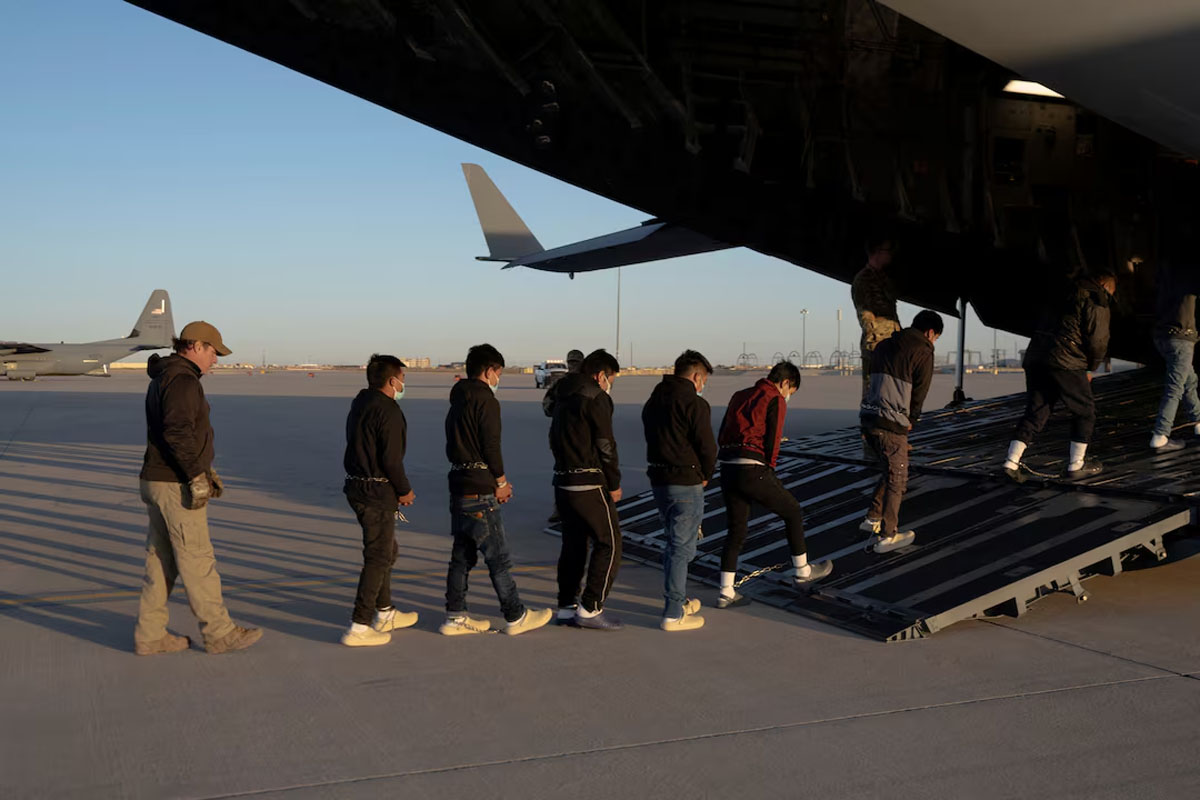
Photo Credit:Defense/Handout via REUTERS
A diplomatic crisis erupted between the United States and Colombia on Sunday when President Donald Trump announced sweeping punitive measures against the South American nation after it refused to accept U.S. military aircraft carrying deported migrants. The confrontation marks a significant escalation in regional tensions over immigration policy.
"These measures are just the beginning," Trump declared on Truth Social, unveiling a package of retaliatory actions including immediate 25% tariffs on Colombian imports, set to double within a week. The measures also include visa restrictions on Colombian officials and enhanced border inspections of Colombian nationals and cargo.
Colombian President Gustavo Petro swiftly countered with his own 25% tariff on U.S. imports. "Your blockade does not scare me," Petro posted on X, offering instead to accept deportees on civilian aircraft to ensure "dignified treatment" of migrants. He pointedly noted that Colombia hosts over 15,660 Americans without legal status, stating he would "never carry out a raid to return handcuffed Americans."
The dispute has broader implications for U.S.-Latin American relations. Brazil's foreign ministry recently condemned the "degrading treatment" of its nationals on U.S. deportation flights, while Mexico also refused to authorize American military aircraft for deportations last week.
Economic analysts warn of significant consequences. "Colombia relies on access to the U.S. market for about a third of its exports, or about 4% of its GDP," noted Alejo Czerwonko, chief investment officer for emerging markets Americas at UBS Global Wealth Management. The U.S.-Colombia trade relationship, valued at $33.8 billion in 2023, now faces unprecedented strain.
The crisis stems from Trump's broader immigration crackdown since taking office, including declaring illegal immigration a national emergency and mobilizing military resources for border security. A White House source indicated the administration is using Colombia to "set an example" regarding countries' obligations to accept repatriation flights.